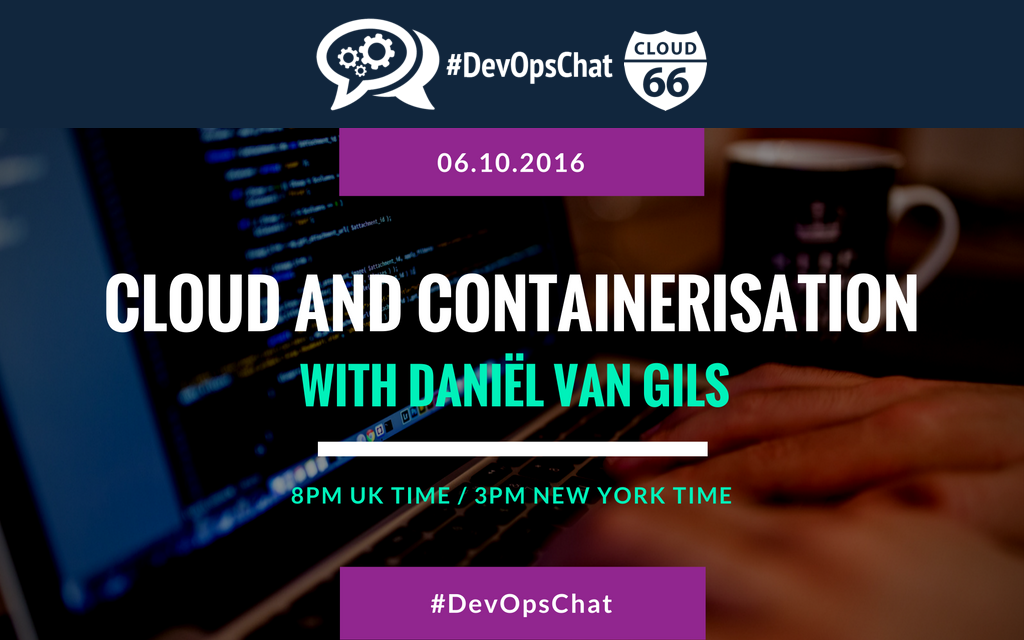
Cloud 66 was recently invited by David Daly to take part in a live #DevOpsChat on Twitter that's scheduled for Thursday 6th October at 8pm UTC. Everyone's welcome to tune in and join the discussion to ask questions about your burning DevOps issues.
Cool, but what is #DevOpsChat?
DevOpsChat is an open online community of individuals who are passionate about DevOps. The team use social media to connect with other developers and their Twitter channel to host a regular discussion on all things DevOps related using the hashtag #DevOpsChat.
As a pre-cursor to the live chat, our Developer Advocate Daniel (@foldingbeauty) and David got together to discuss the relationship between DevOps and cloud-based services and the impact containerization has had on how we develop software.
Interview highlights
Here's a short summary and some of the highlights from the full video interview:
Create unique projects with the best technologies
When working on a container project, you have the ability to break down your application with microservices. This gives you the option to choose the best technology for your project from available libraries, rather than just settling for the best overall stack, that may compromise or degrade some areas of how your applications run.
Technology freedom
Containerization means you’re not locked into one language, framework or library. As the services can talk to each other, it doesn’t really matter what the implementation looks like. It allows you to mix and match technologies that are best suited to your app.
For best results on both sides of your Dev and Ops team, you should work closely together as a single entity to jointly make decisions about what your container infrastructure should look like.
A container is not a virtual machine
Containers help you break down your application into microservices, and helps you move your code in an isolated environment from point A to B. Don't try to add everything to your container as you would do with a VM. Make sure you've created a light image using the right Dockerfile.
To learn more on how to achieve this, you can read more about Habitus, an open source build flow tool for Docker. It allows you combine multiple Dockerfiles into a complex build and deployment flow.
Video interview
You can watch the pre live chat discussion between David and Daniel here:
See you then!
